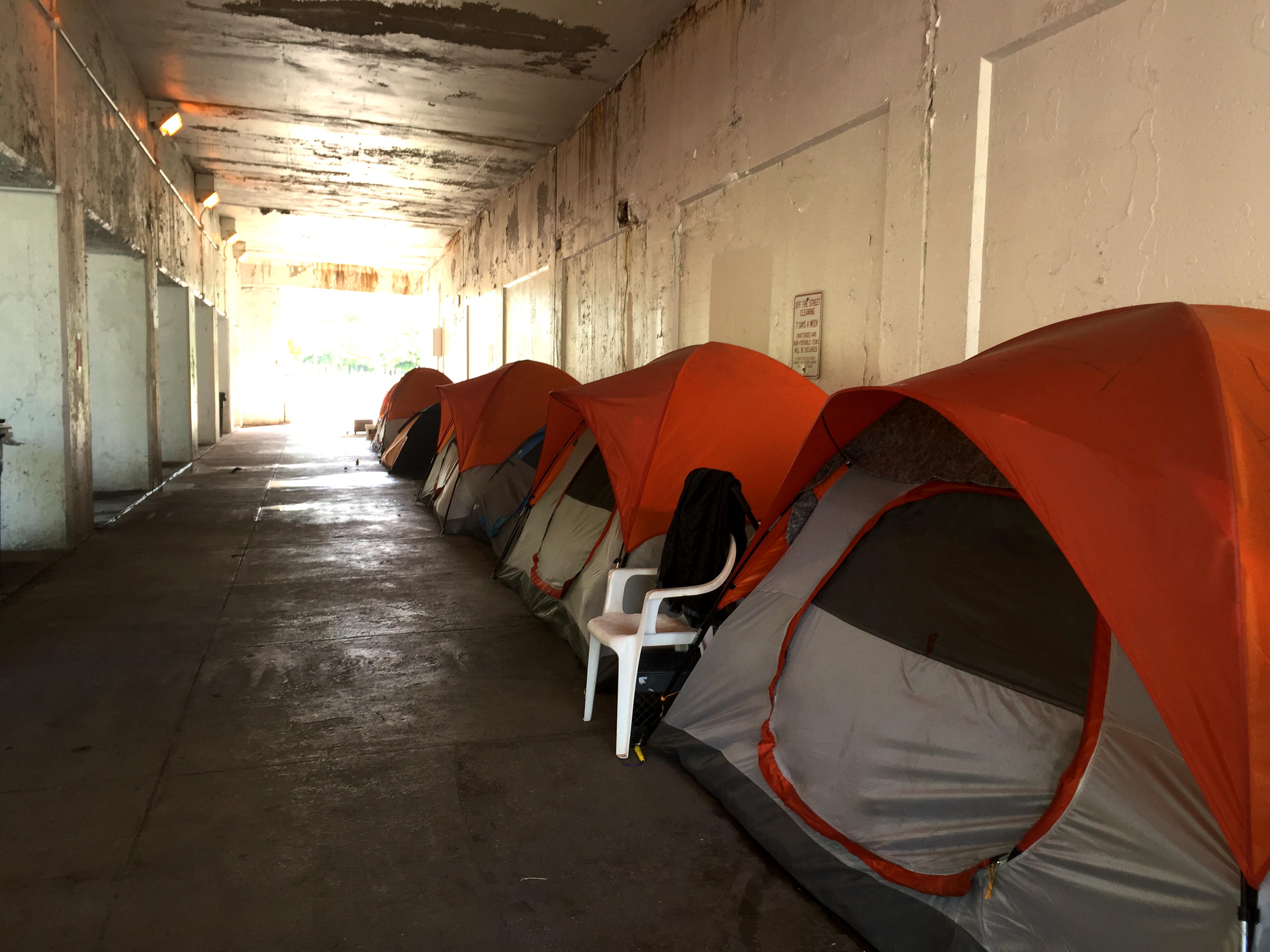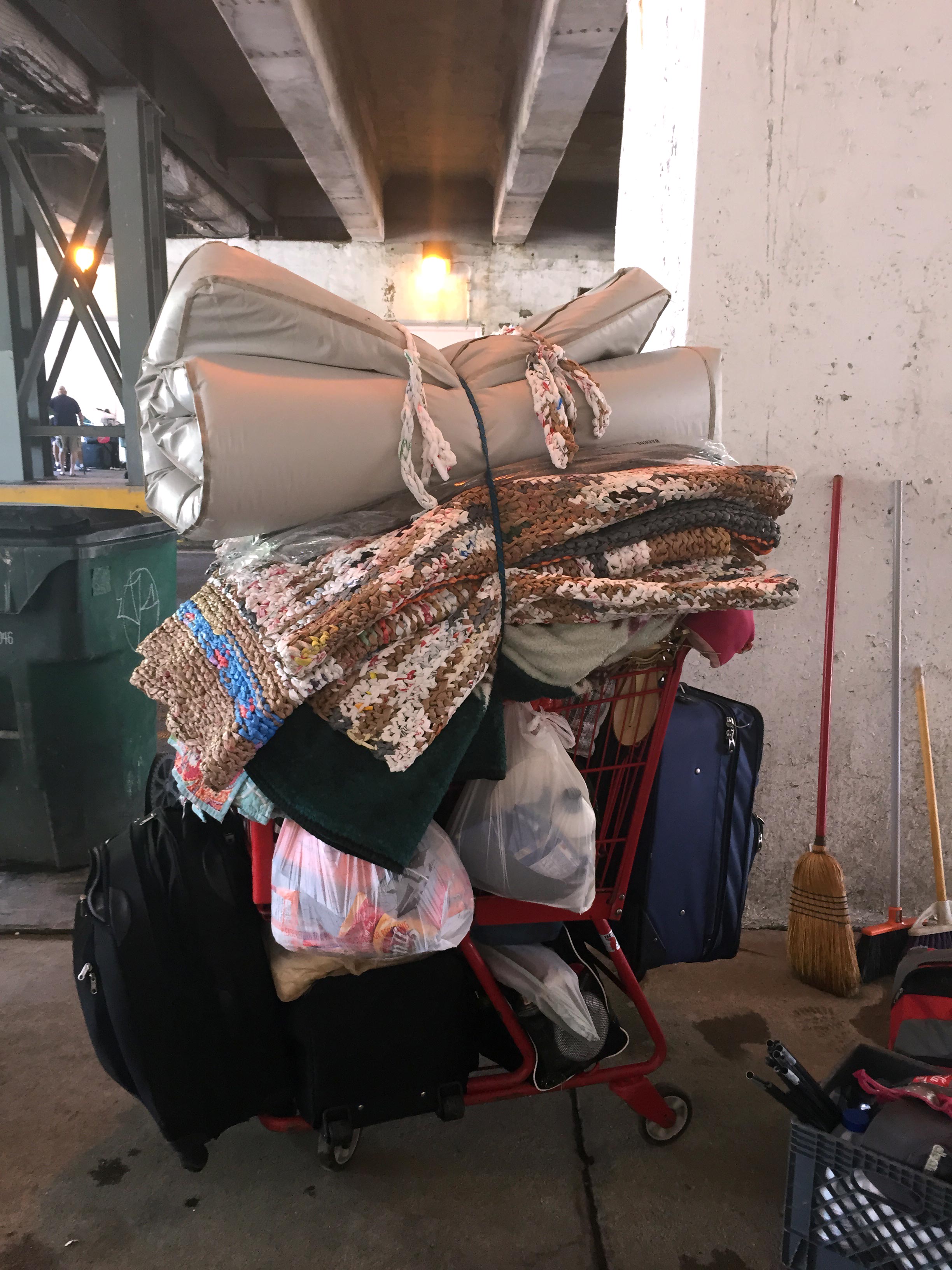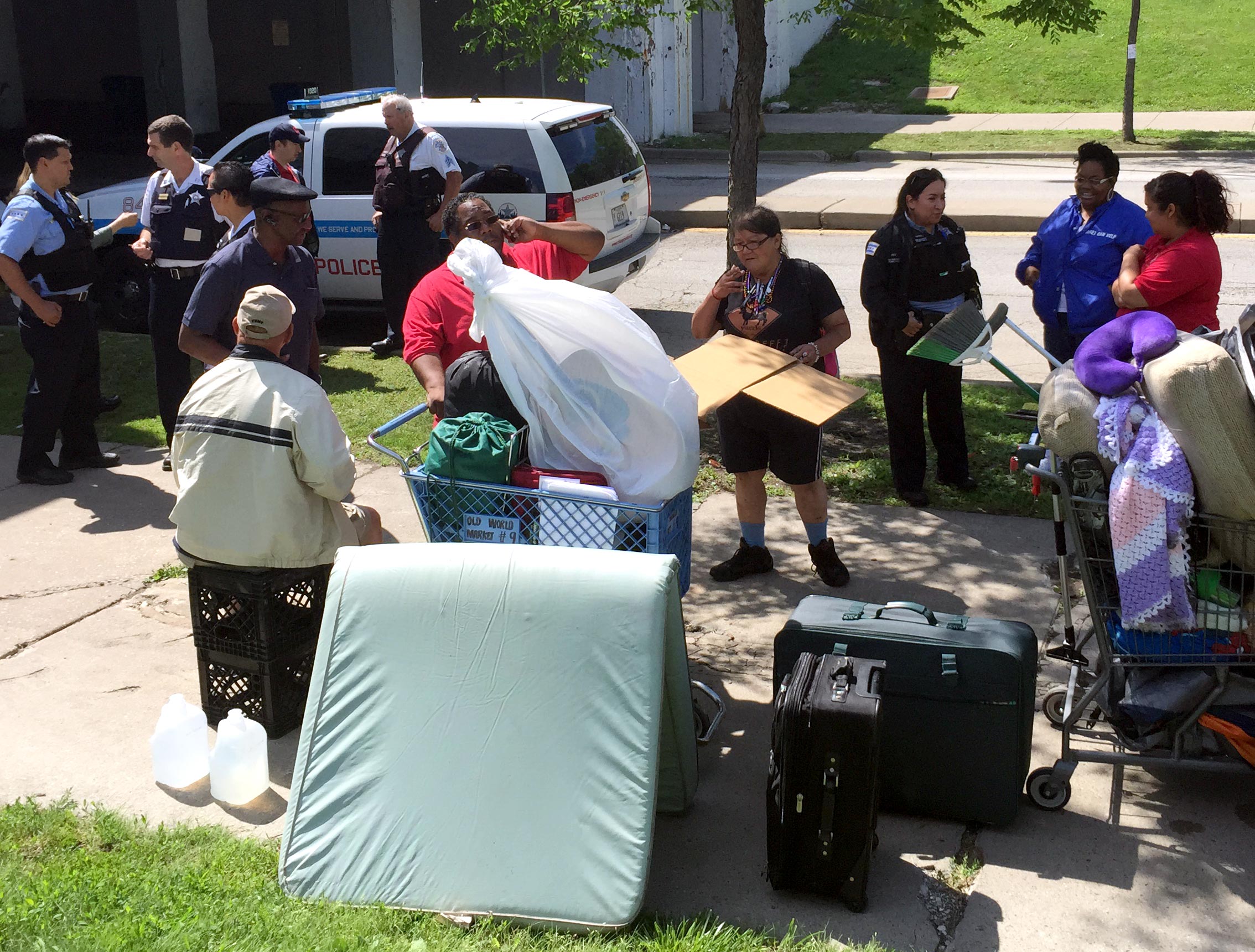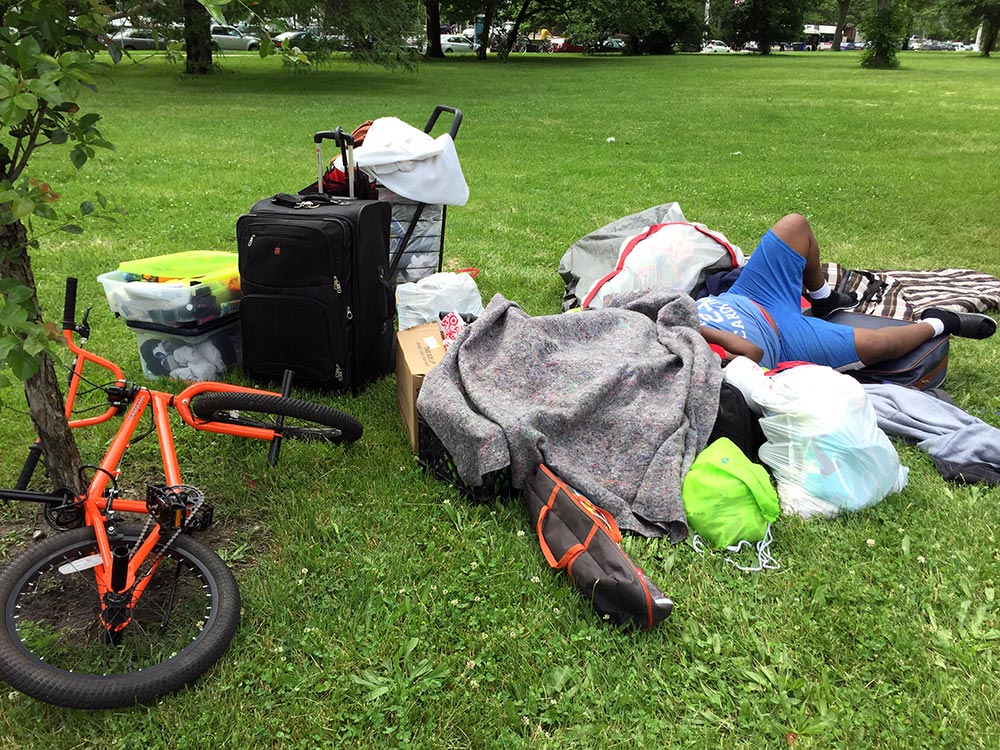Mumford and Sons’ concert displaces homeless
By By: Melissa Muto

Mumford and Sons’ concert displaces homeless
By By: Melissa Muto
Advocates say a delayed outdoor rock concert in Chicago’s Uptown neighborhood has created uncertainty about if and when a homeless encampment can return to the area.
One woman’s journey from under the bridge and back:
For months now, a line of nearly 20 tents in orange and blue have lined both sides of Wilson Avenue under the Lake Shore Drive bridge. That’s where about 40 homeless people have been living and had formed a makeshift community. There was a similar encampment under the Lawrence Avenue viaduct. Each person or family had an unofficial space, surrounding their tents with belongings including wheeled carts, camping chairs and even a full-sized grill that some of the men took turns cooking on.
But all of that changed earlier this week in advance of a Mumford and Sons concert that is expected to draw thousands to nearby Montrose Beach. Originally scheduled for Wednesday, the concert was postponed until Friday.
On Tuesday, city workers ordered the homeless people to leave so they could clean the area. The workers also threw away many of the people’s belongings, including blankets and clothing, in what advocates call a violation of city policy.
“You know, it’s like we’re not people, like our stuff doesn’t matter,” said a homeless woman named Susan, who declined to give her last name. “We’ve got nowhere to go. We’re just trying to live.”
Susan said she was devastated about losing her blankets: “They’re even expensive at the secondhand store when they’re half-off. It gets cold out here — we were freezing in May.”
Clearing out a viaduct under a bridge isn’t unusual: The city routinely asks people who are homeless to leave for short periods of time so they can clean the area.
But advocates say it was different this time. They charge the city violated its own policy for handling the personal property of the homeless.
“There’s an agreement that before property’s thrown out, people should get notice if there’s a problem with the property and have time to do something with the property,”said Patricia Nix-Hodes, an attorney for the Chicago Coalition for the Homeless. “That didn’t happen.”
Workers put up a sign saying the cleanup would start at 10 a.m. Tuesday. Instead, a team of ten city workers arrived in a van around 9. They said they were following city orders to clean the area and were instructed to throw out anything in their way. Some bags, carts, and boxes were still under the viaduct.

Rene Heybach, another attorney for the Chicago Coalition for the Homeless, said she told the workers they were early for the cleanup and to stop what they were doing. They reportedly refused.
She said she told them they were in violation of the city agreement. But Heybach said that none of the workers she spoke to Tuesday had been properly trained in that protocol, and none of them, including the supervisor, had even heard of it.
The supervisor on the ground did order her staff to weed whack and cut the lawn first to give people more time to remove their things.
But Heybach said the city’s approach to clearing the area this week was disorganized and confusing. She said they created an emergency situation and added undue stress while not offering any help for the situation.
“Everyone is saying different things, they are not coordinating,” said Heybach, “Everyone’s been confused and remains confused.”
Susan, the homeless woman who lost her blankets in the cleaning, said workers put up signs with Tuesday’s date for the street cleaning. But she said they told her a day earlier that she had to leave, and that she’d only have to leave for a day.
“They changed their story, they are trying to get us messed up so we lose all our stuff,” Susan said. “It’s like we’re not people, like we don’t exist.”
Susan, who said she struggles with anxiety, PTSD, neuropathy and other medical conditions, was a single parent and ran a daycare before becoming homeless.
“It’s embarrassing that life can get this low,” she said. “We’re not bad people, we’re just homeless.”

Attorney Rene Heybach said the Department of Family and Support Services was supposed to help transport some of the homeless people and their items to a nearby safe location. The city agreement says the DFSS “will lead the City’s contact with homeless persons during the cleanings.” But she said DFSS didn’t arrive until after the other city crews were already there and clearing the area.
DFSS spokesman Matt Smith said the department’s team is trained in the procedure for handling homeless people’s belongings, which includes notification so there’s “ample time to prepare and remove their possessions from the area being cleaned.”
He said this cleaning was different than routine monthly ones because multiple other city services were involved. The size of the concert also made it necessary for people living under the bridge to leave the area for a longer time period.
Smith said the show is expected to draw thousands and will bring a lot of foot traffic there. He said having tents and people blocking the sidewalks would present a health and public safety issue.
“What I believe we are going to be doing is taking tents or possessions or anything that shouldn’t be here … and taking them to a shelter and inventorying them,” Smith said. “If they want to reclaim those items later, they can make arrangements with our staff to do so.”
But by the time DFSS arrived, workers from other departments had cleaned out all but a few items remaining beneath the viaduct.
DFSS encouraged people to sign up for a system that determines eligibility for supportive housing. The Salvation Army showed up to offer their services too. But Smith said even though people were offered shelter, the city can’t force them to take it.
Susan says she was abused in a local homeless shelter, and doesn’t want to go back.

People who’d been living under the bridge spent Tuesday spreading their remaining belongings on the grass and over benches at a nearby park to dry out from a rainstorm. Some did go to shelters, while others found temporary housing with family.
But several of them have spent the week sleeping in the open on blankets and mats. They said DFSS had found them temporary storage for their stuff at a nearby CVS.
Susan had planned to join them in the park, but said she was afraid to sleep out in the open like that. She found temporary shelter across town instead.
“I don’t want to just lay on the ground on top of blankets, I’m a woman, I need privacy,” Susan said. “Every other woman (who lives) down there has a man, or husband or someone to protect them. I don’t.”
But like many of the others, Susan plans to return to her spot under the bridge as soon as she can.
It’s unclear when, or if, that will happen. Thursday, a representative from the Chicago Coalition for the Homeless said she had not heard back from the city on whether the homeless people could return after the concert.
Melissa Muto is a WBEZ Pritzker Journalism Fellow.




